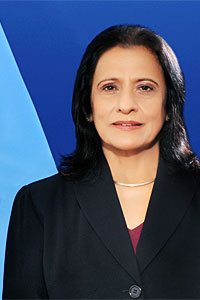
To mark World Hepatitis Day, the World Health Organization (WHO) is urging policymakers, health care providers and political and civil society leaders in the Southeast Asia region and globally to accelerate hepatitis testing and treatment, recognising that everyone, everywhere has just "one life" and "one liver" -- the theme of this year's event.
Globally, an estimated 354 million people live with chronic hepatitis B and C and nearly 1.1 million die annually from hepatitis-related complications such as liver cirrhosis and cancer. Hundreds of millions of people with hepatitis remain unaware of their status, which is why for decades it has been referred to as the "silent killer". Safe and effective vaccines can prevent hepatitis B and antiviral drugs can manage chronic hepatitis B and cure most cases of hepatitis C. However, to achieve these outcomes and eliminate hepatitis as a public health threat by 2030 -- the Sustainable Development Goal target -- access to prompt and accurate testing is required.
The Southeast Asia region accounts for around 20% of the global hepatitis mortality burden. An estimated 81% of all hepatitis deaths in the region are attributable to hepatitis B and C. An estimated 60 million people live with chronic hepatitis B and about 10.5 million live with chronic hepatitis C. Every year, the region sees almost half a million new hepatitis B and C infections -- about one every minute.
Nine countries of the region have achieved coverage of more than 90% of the third dose of hepatitis B vaccine. Eight countries now also provide the hepatitis B vaccine birth dose. To date, four countries have controlled hepatitis B through vaccination. However, timely access to testing and treatment for hepatitis B and C continues to lag. Just 10.5% of people who are eligible for treatment of hepatitis B know their status, and just 4.5% are on treatment. For hepatitis C, just 6.9% of people eligible for treatment know their status, and of them, just 23% have access to treatment.
To accelerate region-wide access to hepatitis testing and treatment, the WHO is calling for action in several key areas. First, policymakers should incorporate hepatitis testing and treatment into packages of essential primary health care services, recognising that testing and treatment must be accessible within the community, close to where people live and work, and included as part of universal health coverage.
Second, health and community leaders should reach out to, empower and engage vulnerable and high-risk communities specifically, and people from all walks of life generally, building on the immense success of similar initiatives for HIV, as well as the region's "Nothing for us, without us" approach.
Third, policymakers and health care providers -- including in the private sector -- should actively integrate services for hepatitis, HIV and sexually transmitted infections (STIs), in alignment with the region's integrated Action Plan for Viral Hepatitis, HIV and STIs 2022–2030, and with a focus on increasing efficiency and reducing gaps and fragmentation.
Fourth, countries should realign -- as appropriate -- the funding allocated to each of the three diseases, with a focus on delivering maximum impact, based on current disease burdens.
Our targets are ambitious but achievable. By 2030, we must achieve a 90% reduction in new chronic hepatitis infections and a 65% reduction in hepatitis mortality. We must eliminate hepatitis as a public health threat. On World Hepatitis Day, the WHO reiterates its support to all countries of the region to accelerate rapid, strategic and equitable progress, for healthier livers and healthier lives.
Dr Poonam Khetrapal Singh is WHO Regional Director for Southeast Asia. WHO's Southeast Asia region comprises the following 11 member states: Bangladesh, Bhutan, Democratic People's Republic of Korea, India, Indonesia, Maldives, Myanmar, Nepal, Sri Lanka, Thailand and Timor-Leste. The article marks World Hepatitis Day on July 28.
